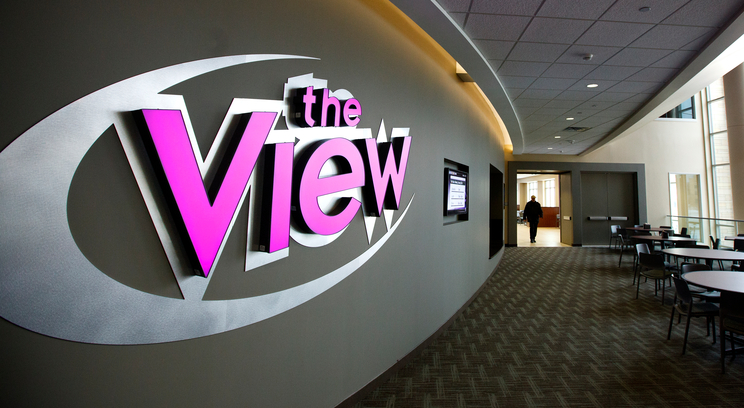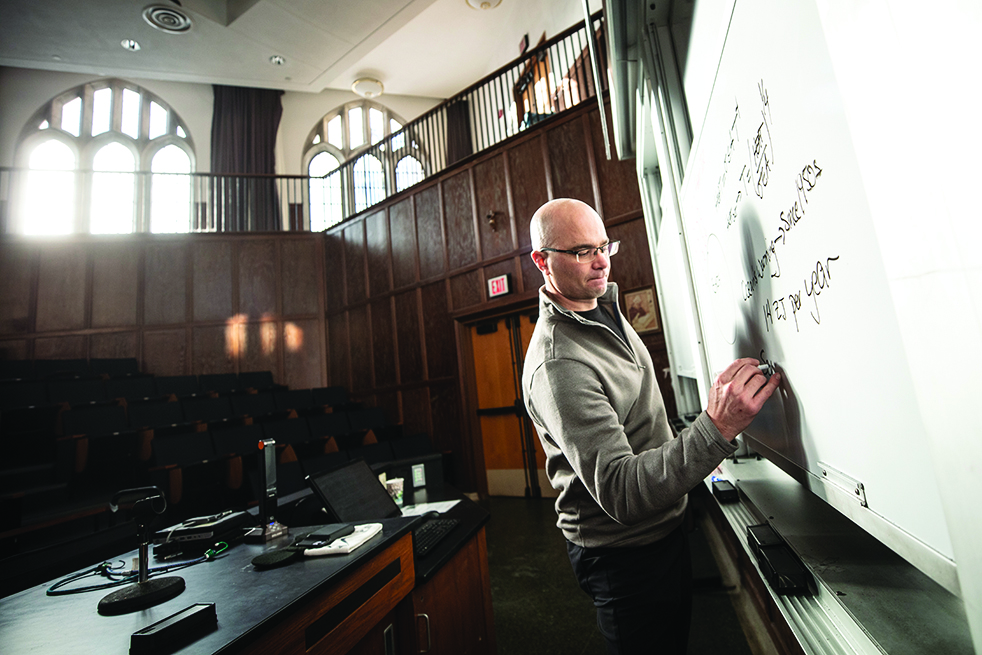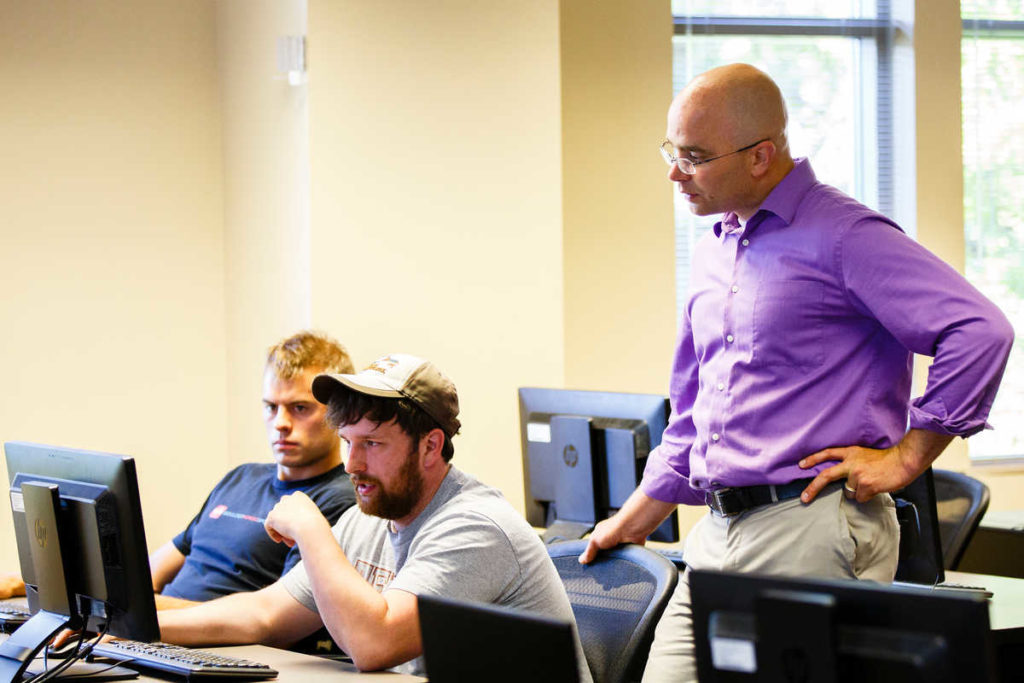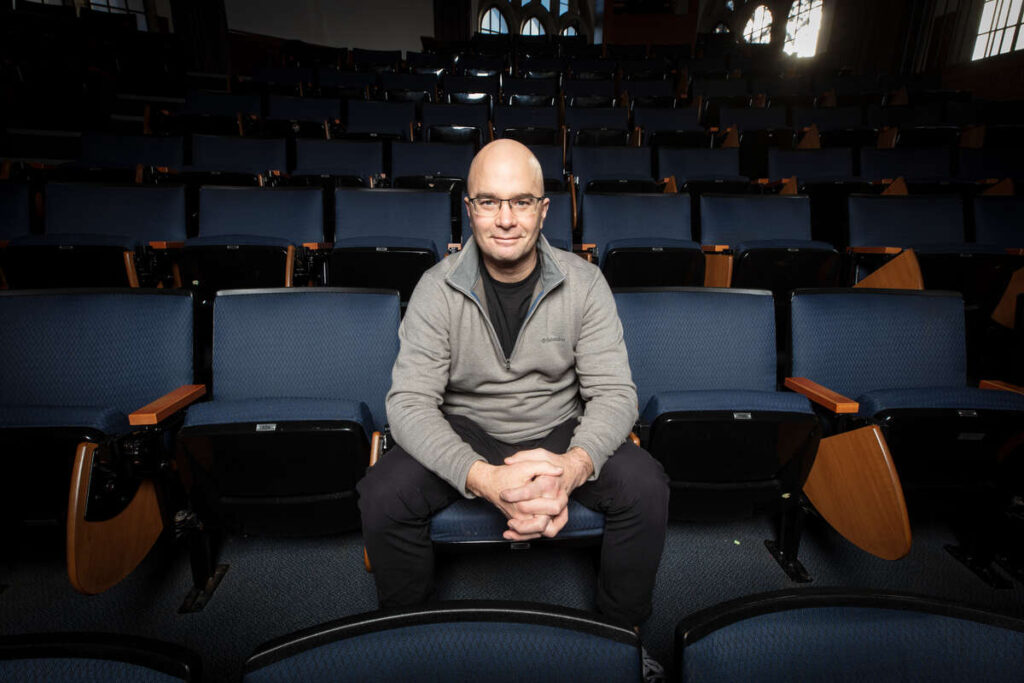As the campus community celebrates Earth Week, many are looking at ways they can contribute to a more sustainable university. According to a UST Recycling Program report, 139 tons of food were recycled from January to July in 2013. While the pigs at the farm that receives the university's table scraps are undoubtedly grateful, reduction of food waste remains a priority for many on campus.
As the largest food service outlet on campus, The View is doing its part by experimenting with a trend that has become a mainstay at colleges and universities nationwide: eliminating the use of trays.
The View's dining room manager Nathan Cardarelle said it was a group of students who prompted the decision to try going trayless. "It's always been an initiative we've wanted to sponsor," he said. "We needed students to come to us to support it."
Prior to the trayless experiment, staff at The View eliminated the use of paper service items, opting instead for plates. "The paper boats used for hamburgers and french fries were creating a huge volume of garbage," said The View staff member Rebecca Heinemann, who also noted that while the staff were reluctant at first, the change became routine. "The plates are much more sustainable," said Cardarelle. "They can be washed and reused."
The first "trayless Wednesday" took place on April 2. While there were a handful of students who complained about the inconvenience of going trayless, Heinemann said the majority of the feedback was encouraging. "I walked around the dining room and asked students what they thought," she said. "It was almost all positive."
Students on both sides shared their thoughts on Twitter as well:
I think it's great that @TheViewUST is trying out some #Trayless days. #sustainability
— Brit Camille (@BritBrit093) April 2, 2014
@TheViewUST Bring back the trays!
— Alex Rozman (@A_Rozzz) April 2, 2014
The concept of going trayless is not new. Prior to making the decision, the staff from The View conducted research on how big an impact going trayless would have. A 2008 study by Aramark Higher Education, one of the largest campus food service companies in the country, stated that at the time 600 colleges and universities had forgone trays in the interest of reducing waste. More recently, the Sustainable Endowments Institute reported that among the institutions it tracks, 75 percent were trayless in 2013 – up from 49 percent in 2009.
Based on what they read, The View's staff estimated they would reduce waste by 25 to 30 percent. On its first trayless day, the results were almost immediate:
As of right now, we have yet to fill a whole 55 gal barrel with food waste. Usually we'd be filling our 4th barrel of the day by now!
— The View UST (@TheViewUST) April 2, 2014
By the end of its first trayless Wednesday, food waste had been reduced by 38 percent. Executive chef Ken Grogg said that while he had not yet calculated the total savings in dollars, the amount of food that was not discarded was significant. "We saved 500 pounds of food," he said.
Still, some students remained skeptical:
No trays at lunch? Okay, then lets give a rebate back to the students for saving food, water, sanitizer, and other inputs @UofStThomasMN
— Andrew Hasek (@arhasek) April 2, 2014
While the cost of meals is not likely to go down, according to Grogg, the quality of the dining experience has already improved as a result of the savings. "The more we can save, the less waste we have, the more opportunity we have to expand the variety," he said, noting that since the first trayless day, fresh berries had been added to the salad bar and additional fresh items that are typically above budget have been ordered for the coming weeks.
In addition to reducing waste and improving the variety and quality of food, The View also was able to reduce the amount of water used to clean the trays. "We use about three quarters of a gallon of water per tray," said Heinemann, noting that the first trayless day saw a savings of 1,250 gallons of water. Going trayless also reduces the amount of soap and chemicals going into the waste water, Heinemann said.
As for the future of the initiative, Grogg is optimistic that students will take on the cause and give it the momentum needed to make every day trayless at The View. "Our whole staff, all of dining services, has real vested interest in the dining experience that the students have. It’s a big deal to all of us," he said. "I hope that the students will be vocal in their support and that the administration will then get behind it."
For now, trayless Wednesdays will continue and trayless weekends have been added. And although trays are available the rest of the week, The View encourages folks to try going without one, reminding diners that they can still eat as much as they want. "We're not limiting anyone's consumption," said Cardarelle, who said that he has noticed about 20 percent fewer people taking trays when they are available.
Dining Services at St. Thomas is self-operated, meaning the university does not contract with a food service company like many peer institutions. According to Cardarelle, that means the staff at The View as employees of the university are also stewards of its mission. "Our mission is to 'act wisely ... to advance the common good,'" he said. "Sustainability is important. There's only a finite amount of water in this world."
Heinemann agrees, stating, "We all have the same goal and we are constantly working toward that, always looking to make improvements with the mission in mind."







